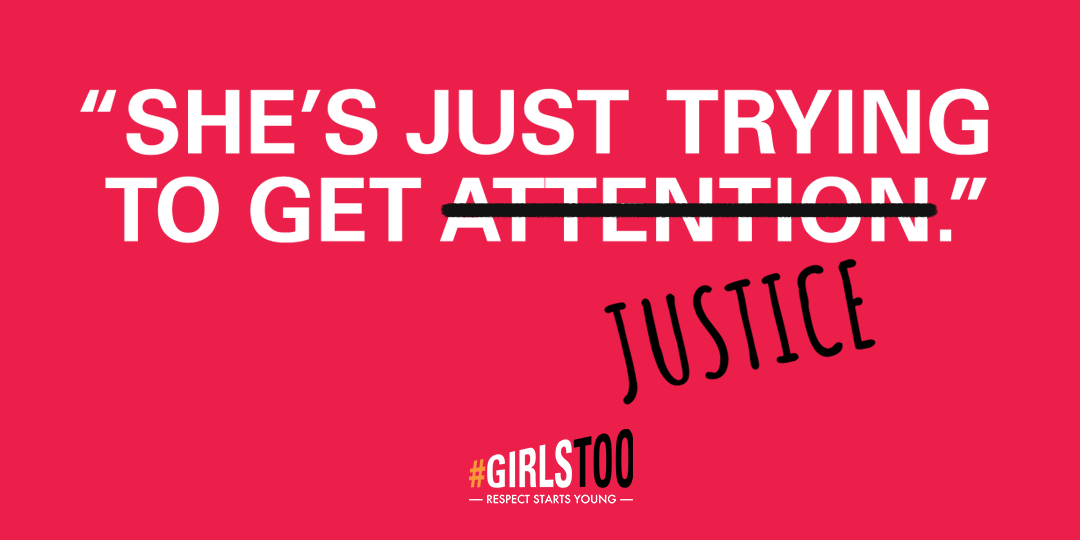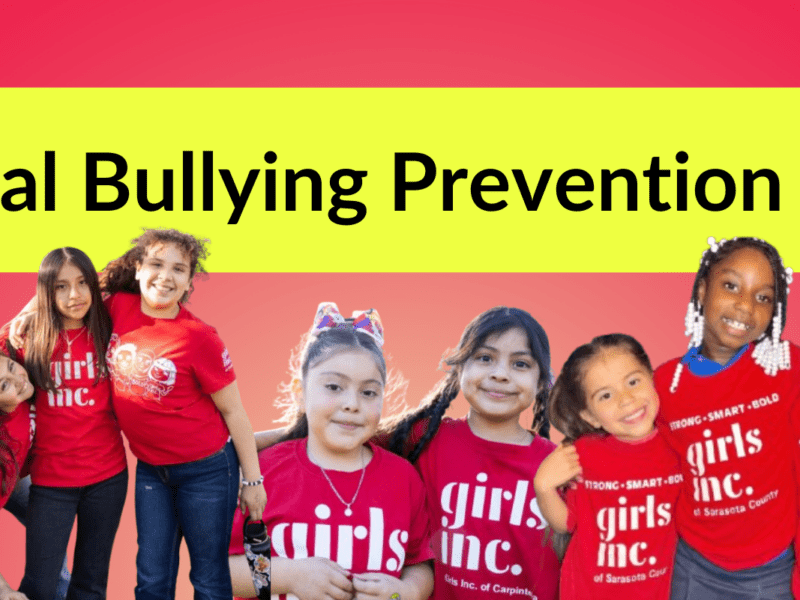Supporting survivors means putting an to end victim blaming

April is Sexual Assault Awareness Month. Key to increasing awareness about sexual violence is highlighting the harmful attitudes and messages that fuel this epidemic. One huge problem is how people talk about and treat survivors. Known as “victim blaming,” this behavior is all too common and both perpetuates myths about sexual violence and silences survivors. Sexual violence is never a victim’s fault.
Here are five harmful messages that we must confront and change if we are to create a society in which girls and all youth grow up safe, respected, and valued.
1. Why didn’t she come forward sooner?
There are a variety of reasons a survivor may choose to not immediately report an incident of sexual harassment or violence. Survivors often fear that they won’t be believed. Or they are afraid of the negative consequences of reporting, which may include social isolation, retaliation by the perpetrator, and harassment from peers. For girls in school — disciplinary actions, such as suspension or expulsion, are also consequences. Survivors may also fear reliving the trauma of having to recount what happened to them to others. What’s more, survivors may be hesitant to report to law enforcement if they do not trust the police or have faith in the criminal justice system.
2. Why is she coming forward now?
When a survivor does come forward, her claims are often met with suspicion and her motives questioned. Some survivors decide to come forward after hearing stories from other survivors that help them realize they are not alone. Others may do so in order to protect other people or hold their perpetrator accountable. This particularly true if the person is in a position of power and influence. A survivor may decide to share her story months, years, or even decades later to find closure and move on with her life. In other cases, it can take time for a survivor to feel able to handle the potential consequences of reporting. No matter when a survivor chooses to come forward, she has the right to be believed and supported.
3. Why did she put herself in that situation?
When we question the decisions of someone who has been harassed or assaulted, we are essentially blaming them for the attack. No matter where an assault happens, or other factors like what the survivor was wearing or whether she was drinking, the only person who is at fault for what happens when violence occurs is the perpetrator. We must create a society where girls and all young people can live and move freely, not constantly have to question their wellbeing or worry about their safety.
4. Why did she continue to see/date/hang out with him?
Overwhelmingly, sexual violence is committed by someone a survivor knows and trusts. In fact, 8 out of 10 rape survivors knew their perpetrator. 33 percent of sexual assaults are committed by a dating partner. When the perpetrator is someone the survivor trusts, outsiders may rush to judgment if the survivor does not immediately end the relationship. However, often survivors maintain contact because they still care about the person. They are afraid to “betray” them by reporting the assault. And some survivors will choose to maintain a relationship with the person who hurt them to maintain “normalcy” and avoid causing pain to others. Survivors need our support, no matter where they are in the process of getting help.
5. If she doesn’t remember details, how can she be sure it happened?
It is normal for victims of trauma to have a hard time recounting the details of their assault. Trauma has a profound impact on the brain’s ability to encode memory. This is due to increased cortisol and norepinephrine levels in the body. The result? Survivor are able to remember certain aspects of the assault vividly. Other details fade with time. That doesn’t mean the assault didn’t happen or that we shouldn’t believe them. Sexual assault survivors face an incredibly high credibility hurdle. They should not be judged by how perfectly they remember details of their attack or how well they present their accusations. It’s not surprising that so many sexual assaults go unreported. We must change that.
Change starts with you. Learn more about the Girls Inc. advocacy initiatives and then take the #GirlsToo pledge and help create a healthier, safer culture for girls.


